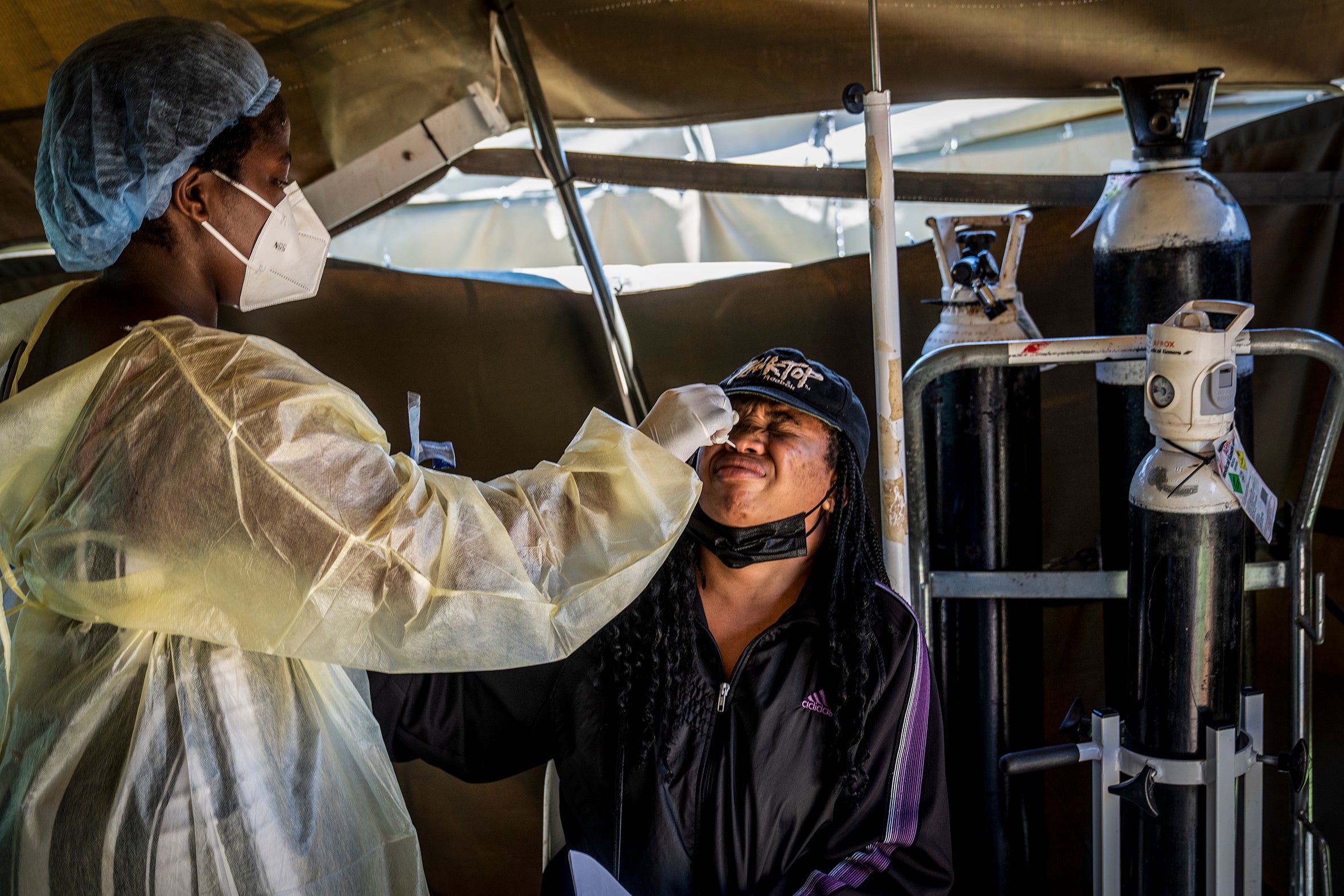South Africa's new COVID cases double in 1 day amid omicron
South Africa’s new cases of COVID-19 have nearly doubled in just one day

Your support helps us to tell the story
From reproductive rights to climate change to Big Tech, The Independent is on the ground when the story is developing. Whether it's investigating the financials of Elon Musk's pro-Trump PAC or producing our latest documentary, 'The A Word', which shines a light on the American women fighting for reproductive rights, we know how important it is to parse out the facts from the messaging.
At such a critical moment in US history, we need reporters on the ground. Your donation allows us to keep sending journalists to speak to both sides of the story.
The Independent is trusted by Americans across the entire political spectrum. And unlike many other quality news outlets, we choose not to lock Americans out of our reporting and analysis with paywalls. We believe quality journalism should be available to everyone, paid for by those who can afford it.
Your support makes all the difference.South Africa s new cases of COVID-19 nearly doubled in a day, authorities reported Wednesday, signaling a dramatic surge in the country where scientists detected the omicron variant last week.
New confirmed cases rose to 8,561 Wednesday from 4,373 a day earlier, according to official statistics.
Scientists in South Africa said they are bracing for a rapid increase in COVID-19 cases following the discovery of the new omicron variant.
“There is a possibility that really we’re going to be seeing a serious doubling or tripling of the cases as we move along or as the week unfolds,” Dr. Nicksy Gumede-Moeletsi, regional virologist for the World Health Organization told The Associated Press. “There is a possibility that we are going to see a vast increase in number of cases being identified in South Africa.”
South Africa had seen a period of low transmission in early November with a 7-day average of about 200 new cases per day, but in the middle of November new cases began to rapidly increase. The new cases reported Wednesday represent a 16.5% positivity rate of cases tested, up from a 1% rate early in November.
South Africa's previous surge, driven by the delta variant in June and July, saw daily new cases reach a peak of more than 20,000. With a population of 60 million people, South Africa has recorded more than 2.9 million COVID-19 cases, including nearly 90,000 deaths.
It's too early to be certain that the omicron variant is responsible for the rise in cases, but it is very possible, say experts. Standard PCR tests can suggest that a positive case is caused by omicron, but only a full genetic sequencing can confirm it.
Labs in South Africa and Botswana are urgently doing genomic sequencing to study omicron cases in order to see if it is significantly more transmissible, causes more serious cases of COVID-19 or if it evades protection from vaccinations, said Gumede-Moeletsi.
“The current data that we’re having is still very limited. So there are so many additional characteristics of this virus that the researchers are busy studying, of which transmissibility is one of them. Severity is also another," she said, adding that researchers also need to find out if current vaccines will still be effective against it.
Hospitalizations for COVID-19 are rising in South Africa, but not at the dramatic rate of the new cases.
The omicron variant has been detected in five of South Africa's nine provinces and accounted for 74% of the virus genomes sequenced in November, the country’s National Institute for Communicable Diseases announced Wednesday.
The earliest detection of the variant in South Africa may have been on Nov. 8 in Gauteng province, according to data released by the institute. It said until the end of October, the delta variant accounted for most genomes sequenced in the country, but in November the omicron variant overtook it.
___
Follow all AP stories on the pandemic at https://apnews.com/hub/coronavirus-pandemic.